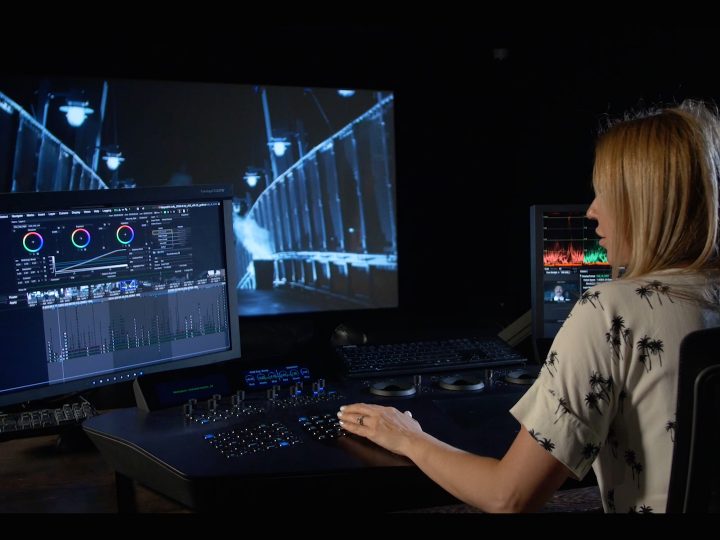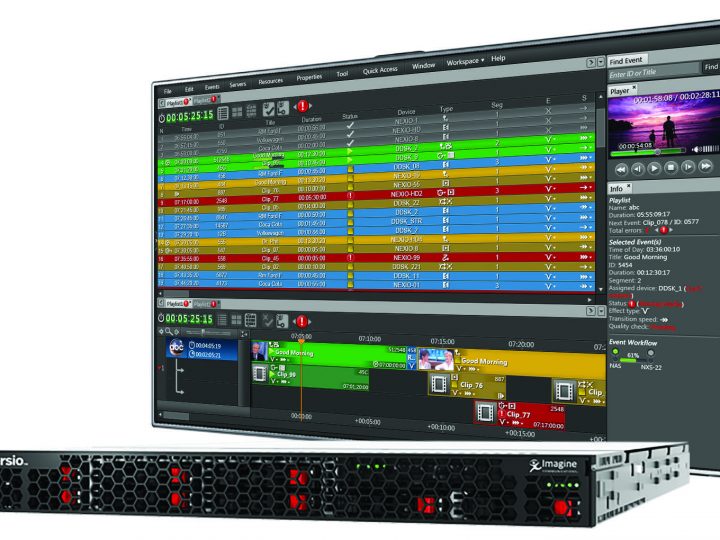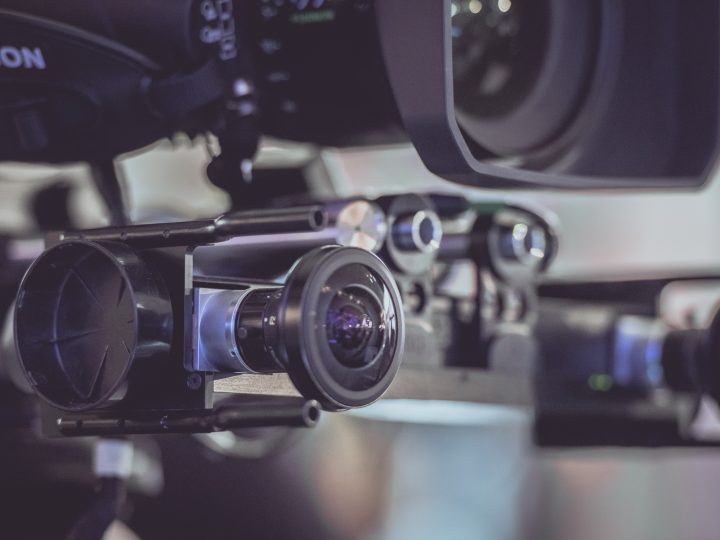
[06 August 2015]
Set-to-finish seamless integration for Germany’s Lerchenberg
The producers of the German television comedy drama series Lerchenberg have implemented a new comprehensive, render-free grading environment from FilmLight. The use of Baselight systems, not only in the grading suite but also on set as well as within plugins for the editor, provides maximum creative control as well as real savings in the time to air.
Lerchenberg is a comedy series about an actor returning from a career slump to star in a television comedy drama series. Mirroring the plot, the show is commissioned, produced and broadcast by German national broadcaster ZDF, and shot in and around ZDF’s headquarters in Mainz. This gives the show huge authenticity and also means executive producers and channel commissioners can regularly look in on the production and the edit.
Prior to introducing the new workflow, dailies were taken by courier from set to lab at the end of each day, where they were ingested and graded with regular remote input from the DoP. “This process was becoming too slow and complex,” explained the show’s producer, Florian Schneider. “We needed to develop a more sophisticated workflow and we found the answer in Baselight’s end to end solution.”
To ensure the best possible image quality from beginning to end, the producers of Lerchenberg first implemented a Daylight near-set grading system. This takes the raw footage from the ARRI ALEXA cameras, imposes pre-set looks developed by DoP Jenny Bräuer and colourist Stephan Kuch, and allows the director and DoP to make adjustments. This means pictures leave the set pre-graded.
The edit is also carried out near the set in Mainz. The workstations are equipped with the Baselight for Avid plugin, so the edit is on the native camera footage. The pre-grade is transferred from Daylight as metadata in FilmLight’s open Baselight Linked Grade (BLG) format, and imposed in real time during the edit. This means no time is lost in rendering a baked-in pre-grade for editors.
If adjustments need to be made, only the BLG files have to be changed, which saves rendering time and storage space. And the editor can always work with the latest grade. After picture lock, the raw content and the metadata is sent to ARRI Media and Kuch can pick up the images in his Baselight suite as he left it on set.
“This new, efficient post production workflow has enabled us to define a look within the details of the show even on a daily base,” explained Kuch. “Working with BLG files means re-rendering is not necessary and gives me more time to improve and talk with the crew to find the perfect look. There is no longer a need to ‘fix it in post’, because we can do everything right on set.”
“My goal was to save time and get a better overall look to the series,” added Schneider. “From a producers’ standpoint, fewer surprises between the set and post production – as well as giving reassurance on set to cameras, designers and costumes – is a key value to the success of the show. The render-free Baselight workflow hit all my targets. The workflow is very fast and seamless, and when the execs come into the edit they can see what they are getting in real time.”







